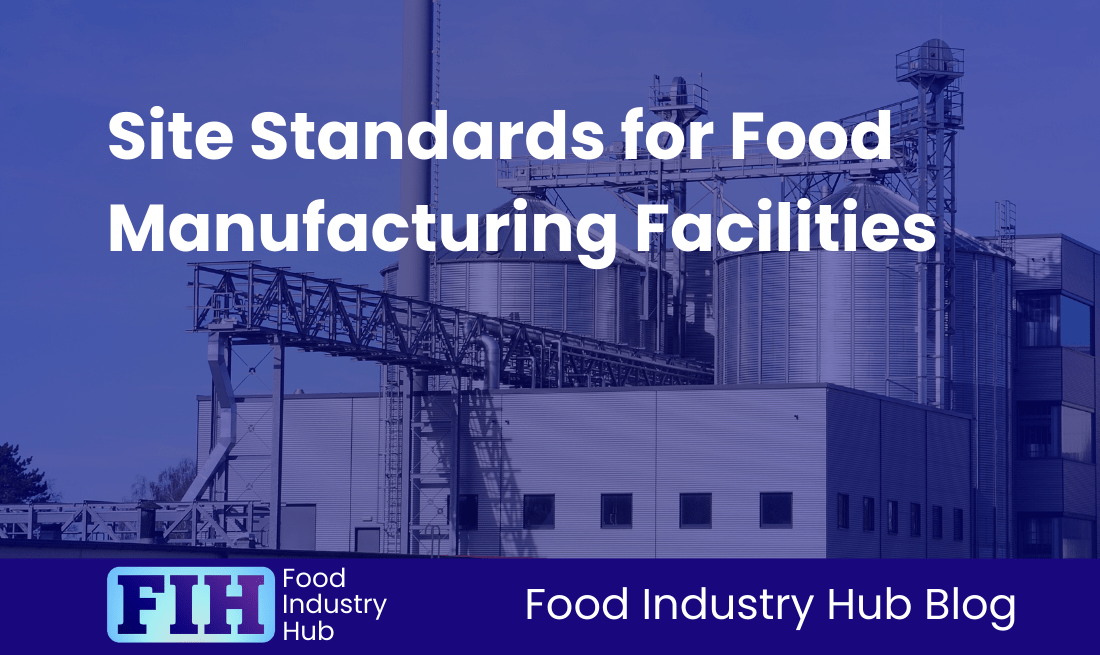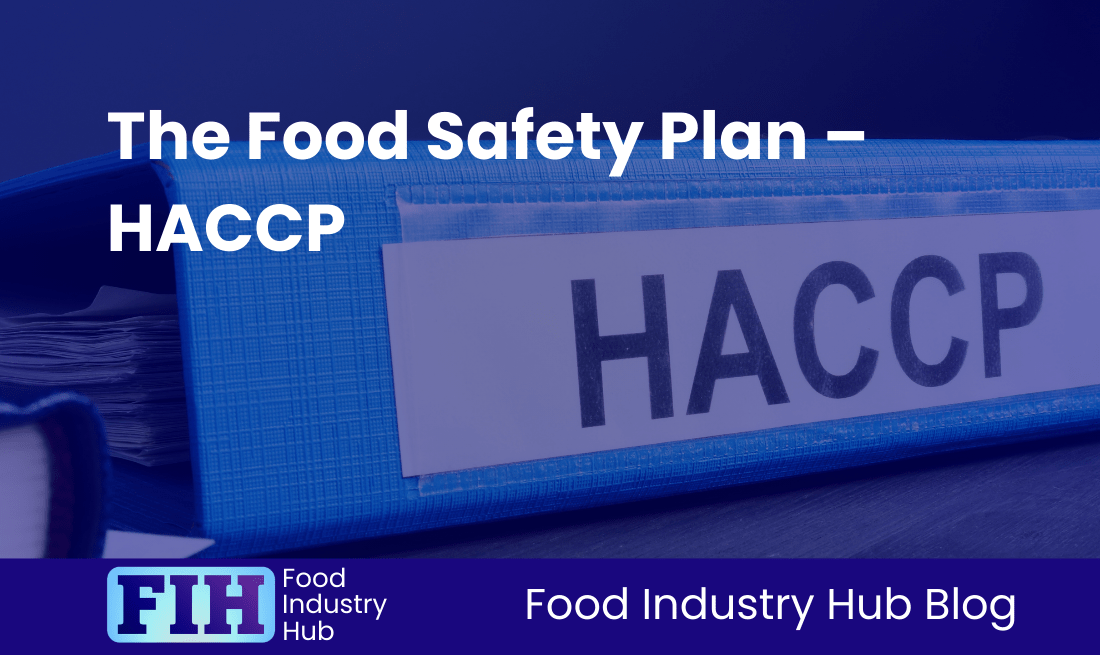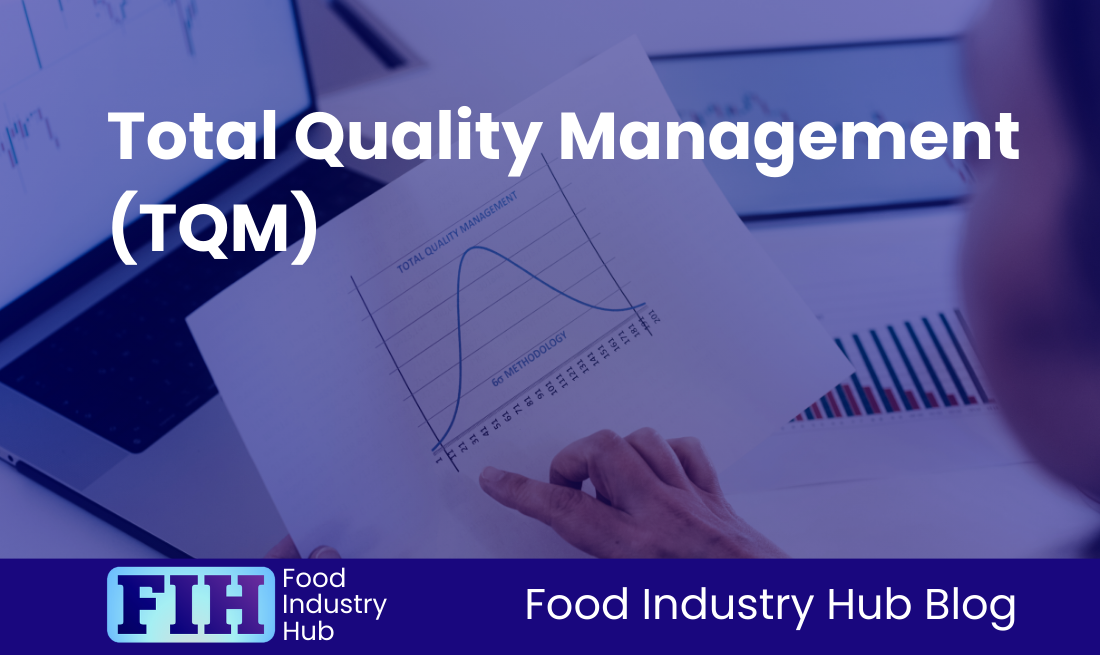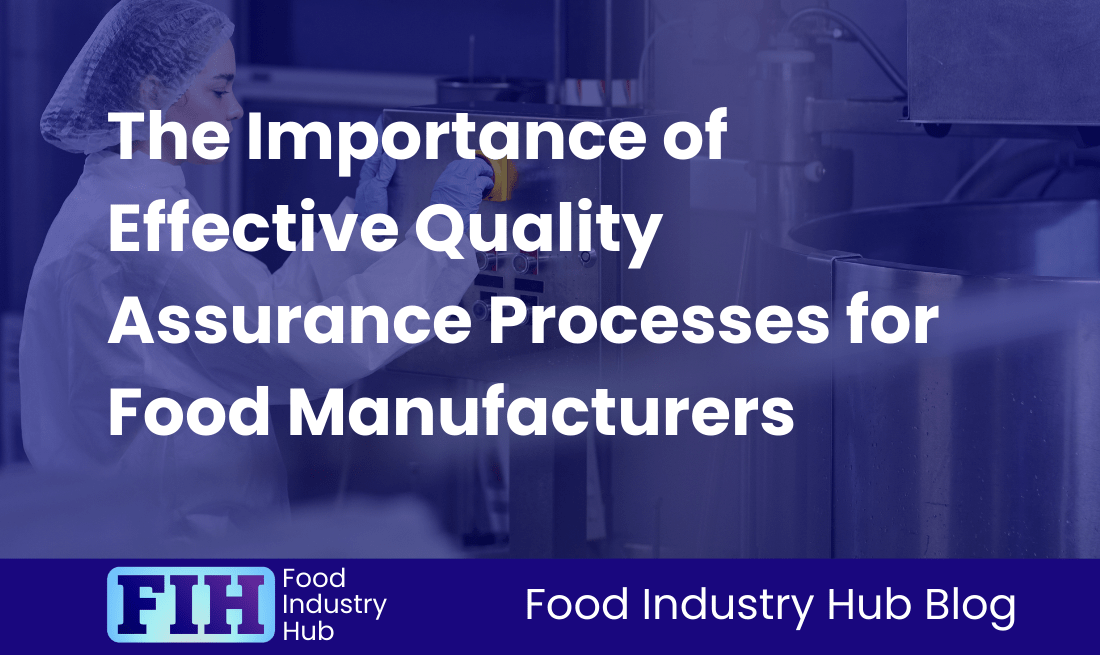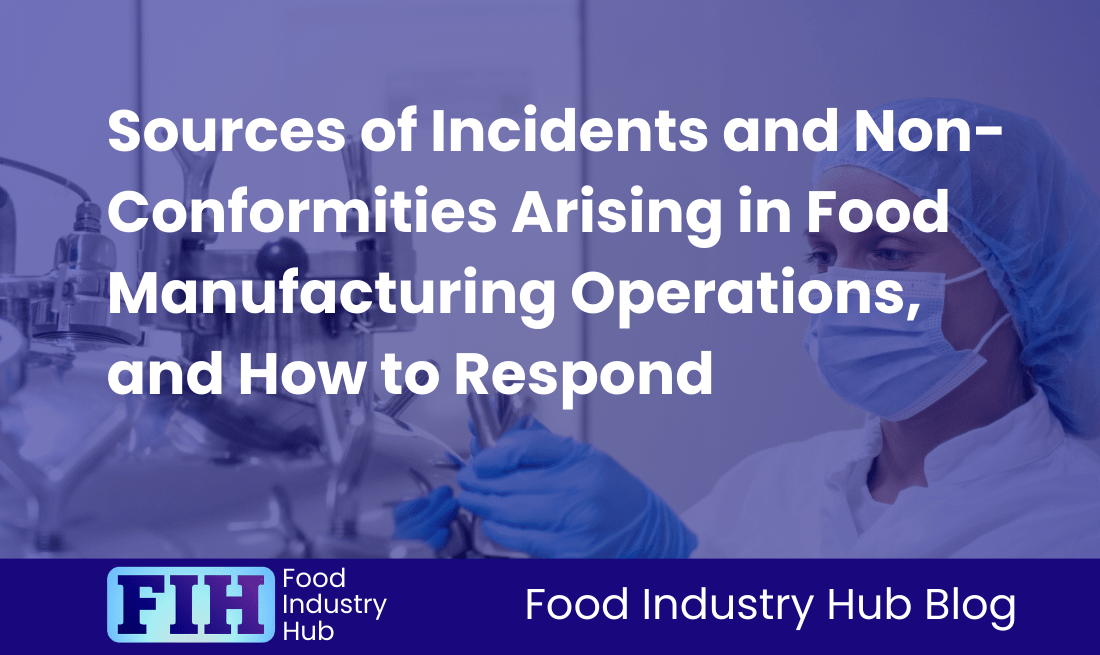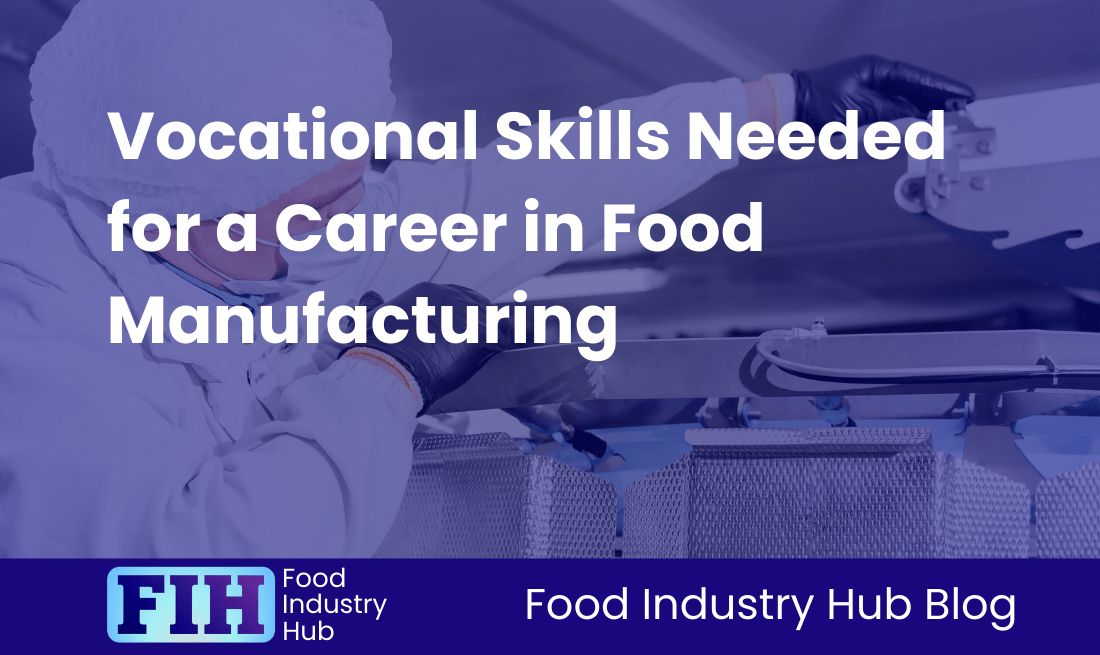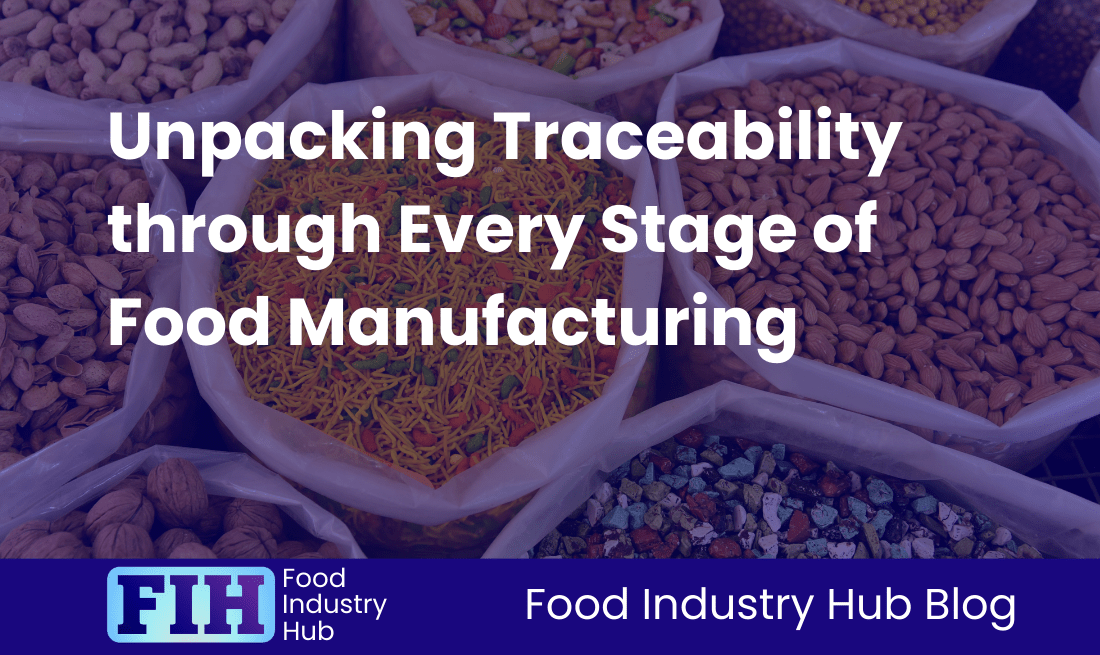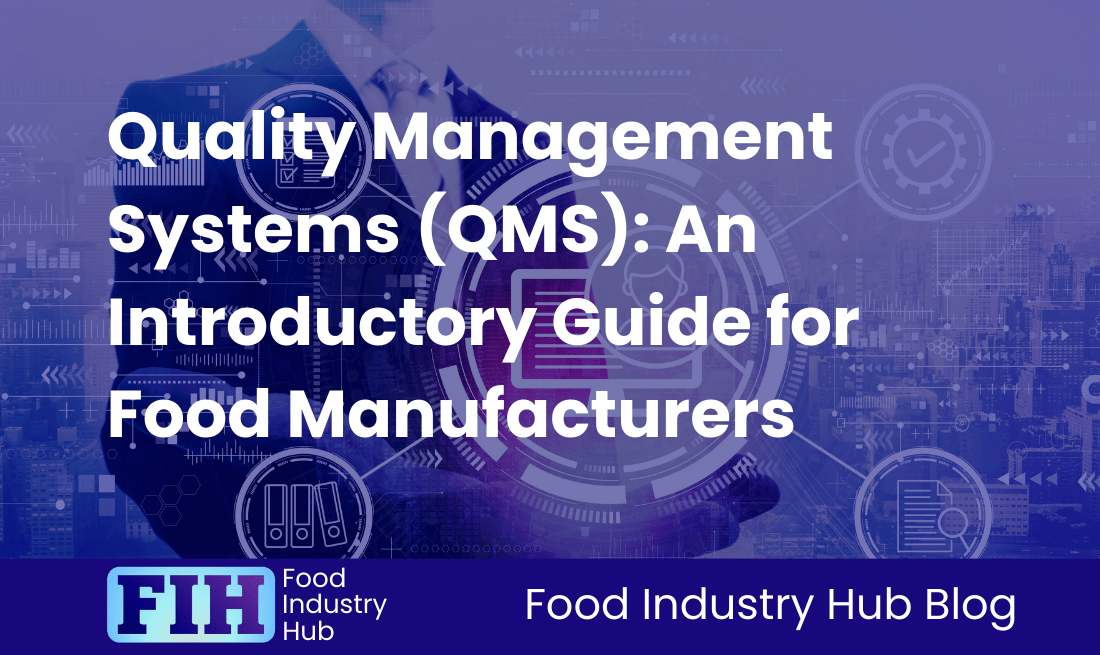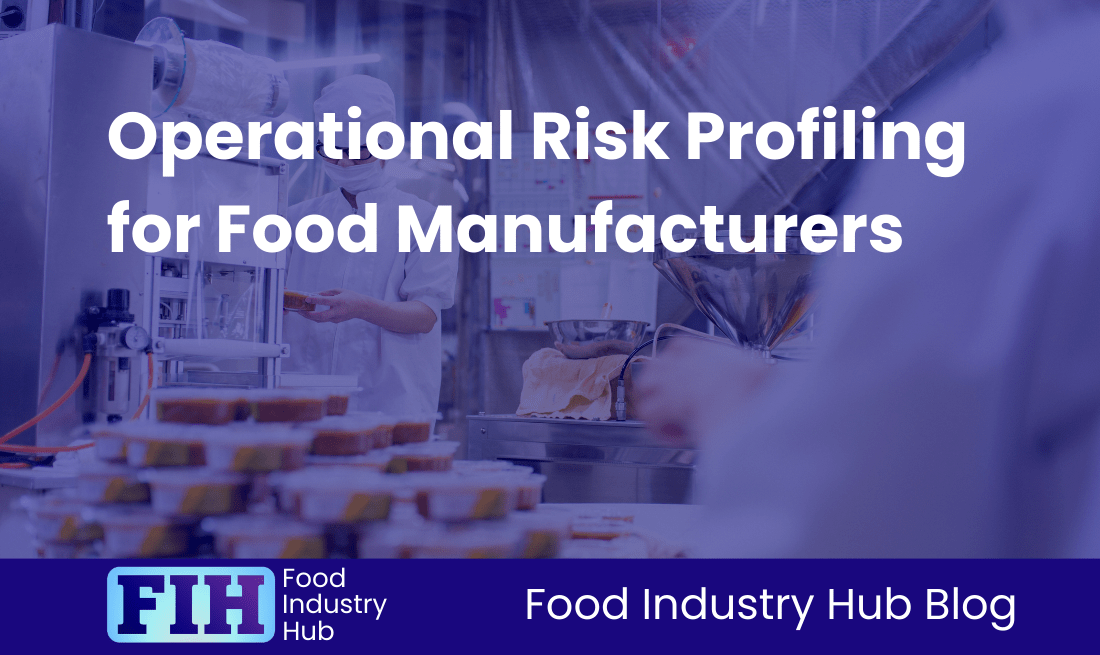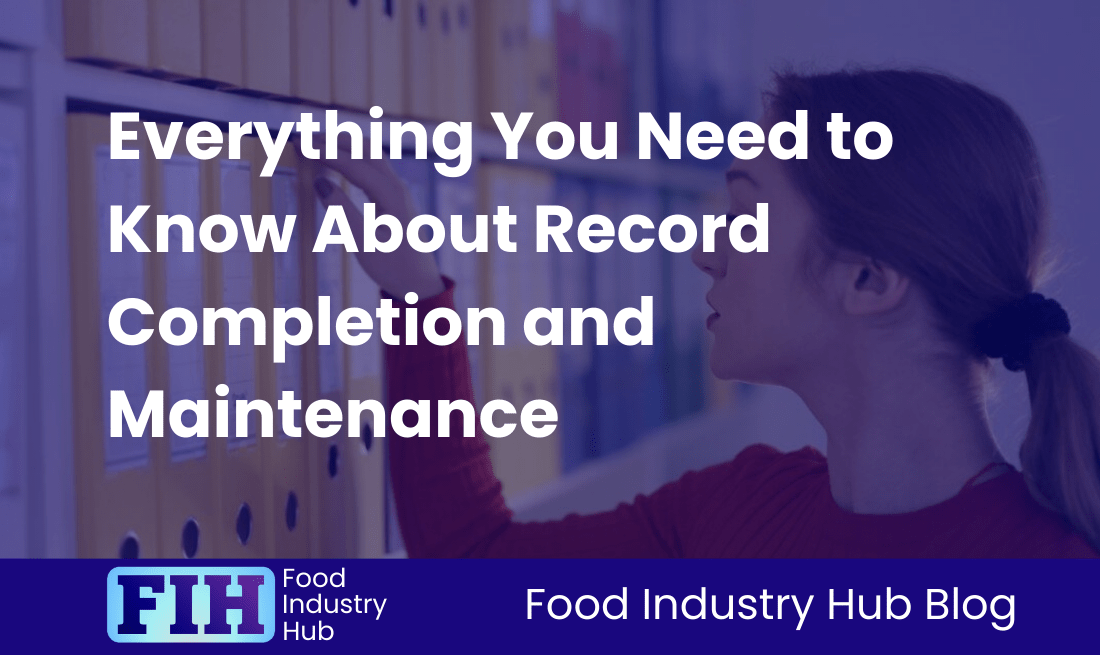Know: GMPs (Good Manufacturing Practices)
Contents
Introduction
Key Takeaways
An Overview of Good Manufacturing Practices (GMPs)
Regulatory Frameworks Governing GMPs
Emphasising Personnel Hygiene and Training in GMPs
Facility and Equipment Design in GMPs
Production and Process Controls within GMPs
Documentation and Traceability in GMPs
The Role of Allergen Management in GMPs
Understanding Global Variations and Adapting to Export Compliance in GMPs
Modern Trends and Technological Innovations in GMPs
Addressing Common Questions about GMPs
Conclusion
Introduction
In the food industry, the importance of food safety and quality cannot be overestimated, as they profoundly affect both public health and consumer trust. Essential guidelines, known as Good Manufacturing Practices (GMPs), help sustain high standards throughout the food production process. By putting into place robust GMPs, food manufacturers efficiently minimise risks of contamination, thus ensuring their products are safe, legal, and trustworthy.
Understanding GMPs
Good Manufacturing Practices (GMPs) are an all-encompassing set of principles that ensure food products meet established quality standards consistently. These practices extend throughout production, from sourcing the raw materials, to processing, packaging, and distribution. Notable elements of GMPs include quality management, sanitation protocols, facility and equipment design, personnel training, and thorough documentation practices.
GMPs not only serve as a requirement for regulatory compliance but also form the foundation of a secure food manufacturing environment. Observance of these practices is imperative for the prevention of foodborne illnesses, regulatory adherence, and enhancement of consumer trust in food products. Moreover, GMPs act as a shield for businesses, protecting them from potential recalls and legal challenges related to non-compliance.
What to Expect from This Article
In this article, we venture into several themes associated with GMPs in the food industry, such as understanding the central principles and regulatory frameworks that govern GMPs. We highlight essential topics including personnel hygiene and training, both of which are paramount in maintaining cleanliness and minimising contamination risks. We also address facility and equipment design best practices that assist in reducing contamination, thereby ensuring operational efficiency.
Our discussion will incorporate insights into production and process controls that guarantee consistent quality, as well as the importance of documentation and traceability for compliance and accountability. Further, we outline allergen management practices, underlining the essential role they play in protecting consumers who suffer from food allergies. Finally, we will pore over the global inconsistencies in GMPs and the implications for export compliance, ensuring that food manufacturers can effectively navigate the complexities of working within diverse regulatory settings.
The aim of this article is to provide a solid foundation on GMPs, accentuating how they enhance food safety, quality, and the integrity of businesses within the food manufacturing sector. By fully comprehending and adopting these guidelines, food producers can improve their operations, safeguard public health, and foster trust in their products among consumers.
Key Takeaways
Good Manufacturing Practices (GMPs) play an essential role in safeguarding food safety and quality, offering a systematic approach for businesses to mitigate contamination risks and uphold high quality standards throughout the production process. By adopting GMPs, organisations not only protect public health but also manage to sustain consumer trust.
Components of a Comprehensive GMP System
A comprehensive GMP system is composed of several elements. Regulatory frameworks form the foundation for food manufacturing standards, with organisations like the FDA crafting guidelines that need to be adhered to for safety purposes. Personnel training is important, with well-trained staff being capable of managing food safety optimally and mitigating human error.
Facilities and equipment should be structured in a way that wards off contamination and allows for hygienic operations, guaranteeing the manufacturing environment is safe and efficient. Production controls need to be set up to standardise processes and maintain uniformity in product quality. Detailed documentation practices are key for monitoring compliance and facilitating audits, ensuring answerability all through the supply chain.
Global Variations in GMPs
For businesses that engage in exporting or operating across multiple regions, an understanding of international variations in GMPs is essential. Different countries may enforce unique regulatory requirements and standards, necessitating companies to adjust their practices in accordance with these demands. This ability to adapt is especially important for multinational entities, as they contend with a complex array of laws and cultural expectations while attempting to sustain product authenticity and adherence to regulations across a variety of markets.
Recognising and addressing these differences not only aids compliance but also enhances the overall quality and safety of food products on a global level.
Food Industry Hub Management Systems can significantly boost the effectiveness of your food safety and quality management system, leading to improved confidence and elevated quality assurance throughout your operations.
An Overview of Good Manufacturing Practices (GMPs)
Good Manufacturing Practices (GMPs) are a key framework within the food manufacturing industry. Their main aim is to safeguard the safety, quality, and legality of food products throughout the production process. From the handling of raw goods to the distribution of finished products, GMPs encompass a wide array of activities. The primary objective of GMPs is to instil confidence among consumers regarding the safety and quality of food products while promoting adherence to regulatory compliance.
Core Principles and Objectives of GMPs
GMPs establish an environment conducive to food safety and quality assurance. These principles are foundational and can be summarised as follows:
Maintaining Cleanliness and Sanitation
Sanitation and cleanliness lie at the heart of GMPs. Routine cleaning and disinfection procedures for facilities, equipment, and utensils are essential to prevent both microbial and chemical contamination. The hygiene standards of staff are equally significant, necessitating strict adherence to sanitary practices such as thorough handwashing and wearing appropriate clothing, especially during food handling.
Orderliness in Operations
An orderly operational setting is key to ensuring smooth and efficient production processes. This includes maintaining a well-organised layout within facilities to minimise the risk of cross-contamination and facilitate easy access for cleaning and maintenance. Effective design considerations support logical flow paths for materials and personnel, mitigating confusion and potential contamination risks.
Rigorous Documentation Practices
Accurate and comprehensive documentation is another significant aspect of GMPs, providing traceability and accountability in food production processes. Detailed records of production activities, quality control checks, and sanitation measures aid not only in ensuring regulatory compliance but also in spotting and resolving any potential issues. This level of meticulous record-keeping is essential for audit processes and helps ensure consistency in product quality.
Advantages of Adhering to GMP Guidelines
Strict compliance with GMP guidelines carries multiple advantages, which are integral to the successful and sustainable operation of food manufacturing:
Product Safety
GMPs primarily focus on the safety of food products. By following comprehensive protocols, manufacturers can significantly reduce risks associated with contamination and foodborne illnesses. This safeguards consumer health and enhances public trust in food quality.
Operational Efficiency
GMP compliance advocates standardised processes, leading to increased operational efficiency. By establishing clear procedures, businesses can decrease errors, limit waste, and enhance production workflows. Such a methodical approach to procedure bolsters productivity and can result in higher profitability within the organisation.
Cost Savings
Financial benefits are another noticeable advantage of GMP compliance. By actively preventing contamination and minimising product recalls, manufacturers can save substantial amounts that otherwise might be expended on dealing with non-compliance issues and reputational damage. In addition, the application of GMPs can lower operational costs through improved efficiency and minimised waste.
Understanding and implementing Good Manufacturing Practices is not just a regulatory obligation. It is a fundamental approach to achieving high standards of food safety and quality, operational efficiency, and economic viability in the competitive food manufacturing industry.
Regulatory Frameworks Governing GMPs
The regulations overseeing Good Manufacturing Practices (GMPs) entail a diverse span of frameworks. These vary intensively depending on geographical regions such as the United States and the European Union. It is incumbent upon food manufacturers to understand and adhere to these regulations in their respective territories.
Overview of International Regulations
In the United States, the operative regulations are the FDA’s modernised Current Good Manufacturing Practices (CGMPs), as outlined in 21 CFR Part 117. These rules lay out high standards with a focus on hazard analysis and risk-based preventive controls. They compel manufacturers to employ proactive methods in reducing the risk of foodborne illnesses. Categories covered include personnel hygiene, facility cleanliness, and appropriate equipment maintenance. This ensures safety measures are upheld through all phases of the manufacturing process [Source: FDA].
The European Union applies a dual regulatory approach for food safety evaluations. This policy includes EC 1935/2004, supervising materials intended for food contact, and GMP Regulation 2023/2006, concentrating on the safe manufacture of these materials. This framework not only enhances public health protection within the EU, but also eases the flux of safe food products across member nations. This underpins a strong market for food manufacturers [Source: EUR-Lex].
The Impact of Brexit on GMPs in the UK
The separation of the United Kingdom from the European Union has brought about significant ramifications for GMP compliance in the UK. Without a Mutual Recognition Agreement, combined regulations may be met with complications. Consequently, UK manufacturers may be faced with extra testing and certification requirements to access the EU market, given their new status as third-country exporters. These shifts bring forth challenges like increased costs, delays, and disruptions in supply chains – elements food manufacturers must be conscious of while maintaining trade relations with EU countries.
In order to tackle these challenges, UK regulatory bodies are actively striving to optimise processes and boost the competitiveness of UK manufacturers globally. They are developing initiatives to speed up approvals and inspections, without compromising on safety standards – making it easier for companies to adapt swiftly to the changing regulatory environment.
Codex Alimentarius Guidelines
Emphasising food safety and quality, the Codex Alimentarius, as developed by the World Health Organization (WHO) and the Food and Agriculture Organization (FAO), sets important international standards and guidelines. These instructions provide harmonised benchmarks for member nations to adopt, thus significantly influencing global GMPs. They cover facets of food hygiene, facility management, and product safety standards. Employing these guidelines can enhance consumer trust and the general safety and quality of food products. This also paves the way for smoother commerce at the international level [Source: FAO Codex Alimentarius].
Defect Action Levels (DALs)
Defect Action Levels (DALs) are a set of important parameters established by the FDA. They define the upper limit of naturally occurring or unavoidable defects in food products. These standards ensure that even when minor imperfections exist, they do not pose a health risk to consumers. Having and adhering to DALs is an essential aspect of food manufacturing, as it provides a clear guideline for quality control, and acknowledges the practical limitations of total defect elimination in food production processes. Operating within these levels enables manufacturers to manage the balance between food safety and operational efficiency, reducing potential public health threats associated with defective food products.
Food manufacturing professionals seeking to assure compliance, maintain product safety, and bolster consumer trust in their brand should gain a comprehensive understanding of these regulatory frameworks.
Sign-up for the Food Industry Hub Mail Service
We regularly produce new content for food industry professionals, and the Food Industry Hub Mail Service is the best way to stay up to date with the latest additions.
Signup today to be added to the Food Industry Hub mailing list.
Emphasising Personnel Hygiene and Training in GMPs
The Importance of Hygiene Training
Hygiene training is a key aspect of Good Manufacturing Practices (GMPs) in the food manufacturing industry. Extensive training programmes provide employees with an understanding of potential hazards in food production and how to put preventive measures in place. The U.S. Food and Drug Administration (FDA) emphasises the need for consistent professional development to ensure employees not only understand but can effectively execute optimal hygiene practices. Training encompasses personal cleanliness, proper handwashing techniques, and appropriate use of Personal Protective Equipment (PPE), all elements the FDA identifies as fundamental in preventing cross-contamination [Source: FDA]. Programme content should also be customised considering the variety of roles within a facility so every employee recognises their part in upholding food safety standards.
Significance of Health Screenings
Routine health screenings within the food manufacturing industry are integral in mitigating risks from contagious diseases, which could potentially contaminate food products. Health assessments, including visual observations and periodical medical checks, should apply to all personnel in food processing areas. These screenings serve to identify potential health risks and reinforce personal hygiene standards among employees. High hygiene standards minimise chances of contaminations, thus protecting consumer health and maintaining a company’s reputation. Consistent health assessments not only align with GMPs, but also significantly decrease instances of foodborne illnesses connected to poor employee health behaviours.
Enforcing PPE and Dress Codes
The role of PPE and strict adherence to dress codes in food manufacturing is indispensable. Suitable attire, including designated uniforms, clean clothes, gloves, and hairnets, drastically reduces the risk of contamination from external sources. The FDA provides specific GMP guidelines on employee dress code, banning jewellery that could potentially harbour bacteria and enforcing handwashing protocols before entering production areas. Clear rules about what clothing and PPE are to be worn in different production areas play a significant role in developing a hygiene-focused culture. This also promotes employee accountability for maintaining cleanliness and hygiene standards, ensuring adherence to regulations and guidelines.
Infusing hygiene training, routine health screenings, and strict enforcement of PPE and dress codes into the GMP framework is essential for promoting food safety in manufacturing environments. These practices not only conform to regulatory standards but also significantly enhance the safety and quality of food products, reinforcing the commitment of food manufacturers to public health.
Facility and Equipment Design in GMPs
Zoning within Facilities: The Effectiveness of Zoning in Preventing Cross-Contamination
Zoning serves as a noteworthy tactic within food manufacturing facilities with the aim to eliminate cross-contamination between different production areas. The creation of well-defined zones for specialised operations — including raw materials processing, product manufacturing, and packaging — allows these facilities to capably manage contamination risks between low and high-risk areas. Physical barriers such as walls and bespoke pathways restrict both movement and airflow, aiding the adherence to food safety rules. Studies reveal that competent zoning reduces contamination incidents by up to 90%, highlighting its role in maintaining hygienic conditions within these manufacturing settings [Source: Food Safety Magazine].
Notably, precise zoning also enhances operational efficiency by controlling the flow of materials. It ensures that raw ingredients don’t come into contact with finished goods until all safety precautions, such as thorough cleaning and inspections, are undertaken. Training the staff on zoning techniques is a key factor; it ensures that the team comprehends and adheres to the set procedures, thus minimising potential contamination risks [Source: Quality Assurance Magazine]. Implementing this comprehensive approach to zoning assures improved product safety and substantially reduces the possibility of foodborne diseases.
Importance of Sanitary Equipment Design
Another key factor in minimising contamination risks lies in the design of the equipment used in food processors. Key tenets of sanitary equipment design include easy-to-clean surfaces and construction of such surfaces utilising food-grade materials that resist damage and do not transfer hazardous substances into foodstuffs. Equipment with sharp corners, surfaces that are difficult to clean, or inadequate drainage could potentially create a breeding ground for dangerous bacteria, thereby hindering cleaning processes and posing risks to food safety.
Best practices surrounding sanitary equipment design also advocate for the integration of effective temperature control mechanisms to ensure food remains within safe temperature bandings throughout its lifecycle. Research stresses that maintaining suitable temperature conditions not only inhibits the expansion of pathogens but also preserves the integrity of food products [Source: GMP Journal]. Implementing these principles in equipment design helps to control microbial contamination, thereby enhancing the overall safety and quality of food production [Source: Food Safety Magazine].
Pest Control Strategies: The Significance of Integrated Pest Management in Facility Management
Effective pest control is of high importance in food manufacturing to guard the integrity of the products and assure compliance with GMPs. Integrated Pest Management (IPM) represents a holistic approach, blending preventive measures, tracking, and control strategies to manage pests effectively. This approach can comprise regular inspections to identify potential entry points and weaknesses, creating physical barriers and deploying traps or biological controls, as required
Accurate recording of pest activity and control methods is imperative for compliance and for continuous improvement in food safety management systems. Complementing this, maintaining a clean environment with proper sanitation practices supports IPM efforts, considerably cutting down the likelihood of pest-related adulteration. Ensuring that staff are well-trained and conscious of pest control protocols amplifies IPM effectiveness, reinforcing overall food safety and adherence to GMP standards.
In essence, effective zoning, sanitary equipment design, and comprehensive pest control strategies underpin the foundational aspects of GMPs in food manufacturing. By jointly working to reduce contamination risks and ensure product safety, these practices play an essential role in maintaining compliance and safeguarding the integrity of the food supply chain.
Production and Process Controls within GMPs
Monitoring of Critical Control Points (CCPs)
Maintaining thorough oversight of Critical Control Points (CCPs) forms the basis of effectual Hazard Analysis and Critical Control Points (HACCP) methodologies. This adherence is essential within the framework of Good Manufacturing Practices (GMPs) in the food manufacturing sector. CCPs identify specific stages in the food production process where control measures can prevent or eliminate food safety hazards. Renowned examples consist of temperature control during the cooking and cooling procedures, pH levels, metal detection, and steps taken for allergen management. Such strategic monitoring at these decisive stages is necessary to confirm the safety of food products for human consumption. Indeed, without adequate temperature monitoring, pathogens such as E. coli and Salmonella may survive during food processing, leading to substantial health risks for consumers.
The HACCP plan should articulate regular monitoring schedules, methods, and timings during production operations. The use of exact measurement tools and calibrated equipment ensures a high level of accuracy. If monitoring results indicate a deviation from the pre-established CCP limits, immediate corrective actions are necessary. This might encompass adjustments to processing parameters or even the disposal of affected products to safeguard food safety. This structured approach helps not only to minimise risks of food-borne illness but also aids in achieving regulatory compliance, reinforcing consumer trust and the integrity of food manufacturing processes.
Significance of Environmental Monitoring Programs (EMPs)
Environmental Monitoring Programs (EMPs) play a key role in maintaining food safety and quality through manufacturing processes. These programs incorporate systematic testing of the manufacturing environment (surfaces, equipment, air, and water sources) to spot contamination risks before food products are affected. EMPs generate essential data that can help formulate targeted cleaning and sanitation practices. For instance, pathogen detection in a production environment merits immediate changes in cleaning procedures to address the risk efficaciously.
Continuous data gathering through EMPs boosts product quality and aligns with regulatory standards, advocating a proactive stance towards food safety. Trends identified via EMP observing can instigate improvements in procedures and practices, bringing light to areas needing attention before they transform into severe contamination issues. Incorporating robust EMPs into GMP frameworks proves indispensable for food manufacturing entities striving to supply safe and top-quality products while simultaneously attaining full regulatory compliance.
Documentation and Traceability in GMPs
Within the food manufacturing industry, sound documentation and traceability practices form the very foundation of Good Manufacturing Practices (GMP). To comply with GMPs, manufacturers need to be diligent in their record-keeping efforts, which are instrumental in ensuring product quality, safety, and meeting regulatory standards. The detailed documentation allows producers to monitor every step of the production process, from the procurement of raw materials to the distribution of the final product. This becomes a crucial process in the event of product recalls due to contamination, aiding in public health protection, and consumer trust preservation. The FDA recommends that organisations establish extensive traceability systems, which help to manage food safety incidents, like contamination or foodborne illness outbreaks, by quickly identifying and rectifying the issues [Source: FDA].
Digital Traceability Systems: Enhancing Product Safety and Quality Assurance
Digital traceability systems employ modern technological solutions to improve product safety and quality assurance in food manufacturing. These systems establish a robust framework for the tracking of ingredients and finished products all through the supply chain.
Seamless integration of technologies such as barcode scanning, RFID technology, and cloud-based databases brings real-time tracking of food products closer to reality, significantly reducing human errors associated with traditional record-keeping methods. Beyond simplifying the documentation of manufacturing processes and managing inventory effectively, digital solutions improve overall operational efficiency.
These systems have become critically important as regulatory compliance requirements, like the Food Safety Modernization Act (FSMA), continue to increase. The FDA’s Food Traceability Final Rule emphasises the need for tech-enabled solutions, advising manufacturers to utilise advanced technologies to fulfil traceability requirements. This shift towards the digital medium makes it possible for manufacturers to have quick access to required records during audits, thus demonstrating compliance without dealing with extensive paperwork, as was previously required.
Significance of Audit-Ready Record Keeping
Retaining comprehensive records is essential in assuring compliance and supporting quality assessments within food manufacturing. Regulatory bodies regularly evaluate compliance through documentation audits. Having well-kept record keeping systems thus enable companies to present precise, current information during inspections. This not only helps reduce the risk of non-compliance penalties but also ensures a smoother audit process.
In addition to facilitating detailed investigations into production issues and verifying product specifications, these records allow organisations to trace back through their processes and identify potential problems early enough before they progress into broader safety concerns.
Electronic Batch Records: Promoting Efficiency and Minimising Mistakes
Electronic Batch Records (EBR) denote a significant technological evolution in the food manufacturing sector. They introduce numerous benefits over traditional paper-based systems. EBR systems streamline the documentation process, making it easier to compile, edit, and retrieve records which significantly reduces the time dedicated to data entry and minimises errors that can occur with manual record-keeping.
EBR systems’ real-time access to batch records allows manufacturers to respond immediately to quality concerns or regulatory queries – an essential factor in maintaining GMP compliance and ensuring product safety. Electronic systems also enhance traceability by automatically linking batch records with relevant production data such as raw material sources and processing conditions. This integration offers a comprehensive history of each batch, enabling quick identification of any arising quality or safety issues.
Potent documentation and traceability within GMPs are critical components to uphold product safety, regulatory compliance, and overall quality in the food manufacturing industry. The adoption of digital traceability systems and electronic batch records not only improves operational efficiency but also underpins rigorous quality assurance processes.
The Role of Allergen Management in GMPs
Allergen Management
Allergen management remains a significant element of Good Manufacturing Practices (GMPs) in the sphere of food manufacturing. Its foremost intention revolves around guaranteeing consumer safety, particularly for those bearing food allergies. For food manufacturers to meet compliance with safety regulations, they are obligated to employ practical allergen control measures throughout their established production processes.
With the growing prevalence of food allergies worldwide, efficient allergen control practices become indispensable in protecting consumer health. A key step involves clear segregation of allergenic ingredients and final products; this ensures products are handled and stored separately, creating a safeguard against inadvertent cross-contact.
It’s also essential to establish robust cleaning protocols. Such protocols ensure that all equipment, utensils, and surfaces that have come into contact with allergenic materials are comprehensively cleaned before engaging with non-allergenic products. These procedures necessitate detailed cleaning schedules and personnel training, cultivating wholesome allergen risk understanding and handling procedures. Educating employees on allergen awareness and strategies for preventing cross-contamination is integral for successfully managing allergens throughout the production process. Accurate product labelling disclosing potential allergens is more than just a good practice; it is a regulatory requirement designed to keep consumers informed and secure.
The Need for Special Production Lines
In the pursuit of managing allergens effectively, numerous food manufacturers have taken to setting up dedicated production lines for items containing recognised allergens. This establishment proves indispensable due to the following reasons:
Avoiding cross-contact is a primary issue. Ensuring the separation of production lines helps to minimise the hazard of cross-contact, which arises when allergenic ingredients inadvertently amalgamate with non-allergenic products. For example, a dedicated production line for nut-inclusive products aids in barring the contamination of nut-less items, hence shielding allergy-affected consumers from severe health threats. Cross-contact incidents can instigate vast health problems for the consumer, thereby underscoring the necessity of isolation in production [Source: University of Manchester].
Design and layout elements are vital. Facilities ought to be built with allergen management as a fundamental blueprint, accentuating the isolation of processing areas and calculated planning of material flow. This includes the intake of ingredients in divided zones and applying distinct transport pathways to curb the likelihood of allergen contamination. The implementation of physical barriers, for instance, separate air handling systems, may heighten safety measures [Source: CRB Group].
Importance of Accurate Allergen Labelling
Correct allergen labelling emerges as a legal obligation and also as an important facet of consumer safety. The essence of definitive labelling can be encapsulated as follows:
Unambiguous labelling equips consumers to make knowledgeable decisions concerning the food items they acquire and partake of. Mislabelling can trigger severe allergic reactions, which, at times, may be fatal. A research study insinuated that approximately 32 million Americans are impacted by food allergies, thus underlining the imperative requirement for precise labelling practices to circumvent health crises [Source: Laval University].
Food manufacturers are instructed to adhere to specific labelling regulations imposed by authoritative bodies like the FSA and FDA. These regulations mandate the declaration of all known allergens on the product’s packaging to avert potential legal obligations stemming from consumer harm due to allergen exposure. Imperfect labelling has statistically been associated with a higher incidence of food recalls and corresponding legal challenges for manufacturers.
Proficient labelling enables the mitigation of risks, diminishes the potential for recalls, and strengthens accountability within the supply chain. This ensures that consumers can spot potential allergens in products, preserving their health while decreasing the chance of legal actions or regulatory penalties for manufacturers.
Allergen Swabbing
Swabbing plays a fundamental role in authenticating cleanliness and ensuring allergen control in the food manufacturing process. Here’s an exploration on how these techniques contribute to practical allergen management:
Allergen swabbing pertains to the testing of surfaces, machinery, and production lines post-cleaning to affirm they are void of allergenic residues. This procedure is elemental in validating cleaning routines. If residues are identified, immediate corrective actions, such as re-cleaning and retesting to ascertain safety compliance, may be executed.
Testing methodologies like Lateral Flow Assays, ELISA (Enzyme-Linked Immunosorbent Assay), and PCR (Polymerase Chain Reaction) are utilised to detect allergenic proteins at exceptionally low levels, offering speedy and reliable results concerning allergenic contamination in production environments. These advanced techniques are crucial for dynamic allergen control within food establishments.
Periodic monitoring and swabbing form the pillars of a holistic allergen cleaning verification plan. Establishing a baseline cleanliness standard via regular testing empowers manufacturers to swiftly address deviations that may transpire during production cycles. The integration of swabbing into the consistent production monitoring highlights the commitment towards consumer safety and regulatory adherence.
Proficient allergen management within GMPs entails the maintenance of separate production lines, assurance of accurate allergen labelling, and the application of efficient swabbing techniques. Collectively, these practices not only protect consumer health but also support food manufacturers in fulfilling regulatory requirements and upholding high-quality standards within their operations.
Understanding Global Variations and Adapting to Export Compliance in GMPs
Differences in Microbial Standards Across Regions
Good Manufacturing Practices (GMPs) incorporate a range of microbial standards, which vary across different regions due to distinct regulatory stipulations and public health considerations. In the United States, the Food and Drug Administration (FDA) supervises microbial testing for pathogens, such as Salmonella and Listeria. The FDA enforces comprehensive testing protocols under the Food Safety Modernization Act (FSMA). This Act highlights the significance of preventive controls, necessitating ongoing risk evaluation and management strategies to deliver safe food products.
The European Union (EU) adopts regulations set by the European Food Safety Authority (EFSA), defining specific microbial criteria to secure consumer safety. These standards derive from continuous monitoring of food safety and public health priorities across EU member states. For instance, the EU identifies particular microorganisms as significant indicators of food safety, thereby necessitating effective monitoring and reporting systems among food manufacturers’ components that receive less emphasis in certain other regions.
Asian countries, notably Japan and China, also use localised microbial testing methods reflecting their regional hygiene practices and risk factors connected to their traditional food production systems. With the rise of globalisation, these countries actively strive to standardise their food safety metrics to enable smoother international trade. This varied landscape of microbial standards underlines the requirement for food manufacturers to carefully navigate with the differing expectations prevalent across various markets.
Regional Certification Requirements
Certifications play an integral role in achieving GMP compliance and ensuring food safety at a global level. Such certifications validate the adherence of manufacturers to the specific safety and quality requirements imposed by regulatory authorities. Notably, globally recognised standards like HACCP (Hazard Analysis and Critical Control Points), ISO 22000, and (more substantially) GFSI-recognised assurance standards are essential for companies looking to showcase their compliance with food safety requirements and to gain entry into international markets. In the United States, upholding these certifications, along with FSMA guidelines, is essential for foreign manufacturers aiming to meet the regulatory criteria set for food imports.
FSMA’s Foreign Supplier Verification Program (FSVP)
The Foreign Supplier Verification Program (FSVP) is a significant component of the FSMA, designed to ensure that imported foods meet the safety standards that match those applied domestically. FSVP calls for importers to ascertain that their foreign suppliers are adhering to U.S. regulations, including compliance with GMP protocols. This verification process covers risk-based evaluations, audits, sample testing, and maintaining detailed documentation to preclude the entry of unsafe food products into the market [Source: Food Safety Magazine].
What makes FSVP remarkable is its capability to hold importers responsible for the safety of imported food items, thus strengthening the integrity of the food supply chain. By requiring rigorous supplier verification and GMP compliance, the FSVP effectively enhances consumer protection, thereby increasing public health confidence.
Recognising regional microbial standards, navigating certification requirements, and complying with initiatives like FSVP are crucial for food manufacturers operating within the complex global environment of GMPs. These elements ensure not only regulatory compliance but also heighten the safety and quality of food products on an international scale.
Modern Trends and Technological Innovations in GMPs
Technological Impact: Role of Automation in Remodeling GMP Compliance and Productivity
Within the food manufacturing sector, automation is revolutionising Good Manufacturing Practices (GMP) compliance and productivity. By harnessing advanced technologies, like Artificial Intelligence (AI) and the Internet of Things (IoT), manufacturers have the capacity to boost operational efficiently and notably reduce human errors that may result in product contamination or inconsistency. Automated systems aid in monitoring environmental conditions—such as temperature and humidity—during production; key elements for upholding compliance with GMP standards. For example, IoT sensors fused into production equipment can yield real-time data, allowing swift remedial actions if any parameters veer outside the acceptable scope.
Digital platforms like provide solutions that transform documentation into a digital format and automate a variety of compliance processes. This results in better workflow management and productivity. These platforms streamline compliance tracking and reporting as well as enhance internal audit preparedness by ensuring adherence to standard operating procedures (SOPs).
Hence, the integration of automation into GMP procedures secures elevated consistency and quality throughout the manufacturing cycle.
Data Analytics and GMP: Leveraging Data-Driven Insights
Data analytics have become increasingly central for food manufacturers striving for improved GMP compliance and smarter operational decisions. By analysing detailed data-driven insights, organisations can real-time monitor production processes, aiding in spotting and correcting inefficiencies and probable quality concerns before they exacerbate.
Advanced analytics have the power to identify production snags and enhance production schedules, yielding broader efficiencies. On the same token, platforms incorporating predictive analysis empower manufacturers to proactively address deviations from GMP compliance while upholding strong quality control measures. This data-centric methodology promotes a culture of proactive risk management, aligning with modern GMP frameworks which give equal importance to safety and quality.
Sustainable Practices in GMP: Emerging Trends
The introduction of sustainability into modern GMP frameworks is an emerging trend as manufacturers acknowledge the importance of environmental responsibility, equally with safety compliance. Adopting sustainable practices not only assists companies in meeting regulatory requirements but also appeals to consumer sentiments for greener production methods. Implementing digital technologies bolsters supply chain traceability, ensuring all sourcing complies with ethical and environmental standards.
The popularity of continuous manufacturing techniques is on the rise. These processes aim to reduce waste and energy consumption during production cycles, aligning with broader sustainability objectives within food manufacturing. By introducing innovative resource management strategies, companies can cut operational costs and their environmental footprint, solidifying their commitment to sustainable practices without compromising GMP adherence.
Taking onboard these technological advancements and sustainable practices is central for food manufacturers aiming to improve their GMP compliance and operational excellence, whilst also acknowledging the growing consumer demand for sustainable and ethically responsible food production processes.
Addressing Common Questions about GMPs
In food manufacturing, Good Manufacturing Practices (GMPs) are inherently important guidelines, used to ensure that products are produced consistently and controlled according to recognised quality standards. To help professionals within the industry better comprehend the significance of these standards, we have addressed some of the most frequently asked questions, shedding light on their importance and means of proper implementation.
Frequently Asked Questions about GMPs
What are GMPs?
GMPs embody a collection of standards and guidelines designed to ensure food products are manufactured under conditions that significantly minimise contamination, whilst maintaining quality throughout production. They incorporate significant aspects such as personnel hygiene, sanitation guidelines, equipment upkeep, and comprehensive documentation procedures for assuring safety and adherence to regulatory requirements [Source: UMass].
Why are GMPs Important?
GMP regulations play an essential role in bolstering food safety and enhancing product quality. GMP compliance aids in the prevention of contamination events – reducing the risk of foodborne illnesses and the financial impact of product recalls – thereby safeguarding consumer health and trust. Additionally, GMPs can amplify operational efficiencies by reducing waste, minimising errors, and facilitating adherence to regulatory mandates which, in turn, can boost profitability.
Who is Responsible for GMP Compliance?
All personnel involved in food production, from management to production workers, share the responsibilities of adhering to GMPs. Periodic training and educational sessions are essential to ensure an unambiguous understanding of their roles and the importance of preserving safety and quality standards throughout the manufacturing process.
What are the Key Components of GMPs?
GMPs encompass several key components that are often grouped as the “5 Ps”:
- People: This refers to ensuring that all staff is trained and aware of their roles regarding GMP compliance.
- Products: This stage involves continuous quality assurance measures during the entire production process.
- Processes: Here, the focus is on implementing well-documented and consistently practised procedures.
- Procedures: They refer to the operational guidelines designed to uphold quality.
- Premises: Encompasses facilities that are designed and maintained appropriately to hinder contamination.
Clarifying Misconceptions about GMPs
There are some common misconceptions about GMPs that can inhibit their accurate implementation. To dispel these, we have provided clarity on prevalent misunderstandings:
Misconception: GMPs are Only for Large-Scale Industries.
Reality: GMPs apply to all sizes of food manufacturing businesses, from large-scale industries to small production units. Regardless of the company’s size, GMPs are integral to ensuring product safety and quality, demonstrating that small operations too must adhere to these high standards of safety and quality.
Misconception: GMPs are Mainly About Compliance.
Reality: While compliance forms the foundation of GMPs, their purpose extends beyond this to create a robust quality management system that enhances product integrity and operation effectiveness. This system doesn’t only satisfy regulatory requisites but also elevates overall product quality and consumer satisfaction.
Misconception: GMPs Are Rigid and Cannot Adapt.
Reality: In fact, GMPs offer a flexible structure allowing companies to adjust their processes in line with specific production requirements, without compromising the safety and quality standards. Such adaptability is important for encouraging innovation and efficiency while adhering to regulatory needs.
Misconception: GMP Implementation is a Financial Burden.
Reality: There may be upfront costs linked with GMP implementation, but it’s important to see this as an investment for long-term success. Effective GMP practices can enhance company credibility, consumer trust, and eventually lead to a more profitable operation over time, relegating them from a perceived burden to a strategic investment.
By addressing these common questions and misconceptions, it is our hope that food manufacturers can develop a deeper understanding of GMPs, paving the way towards improved practices and the production of safer, high-quality food products.
Conclusion
In the food manufacturing industry, adherence to Good Manufacturing Practices (GMPs) underpins the surety of product safety and quality. GMPs envelope numerous pivotal themes, each one playing a substantial role in regulatory compliance and ultimately, consumer welfare. As we conclude, let’s summarise the important themes surrounding GMPs and their significance in the ever-evolving landscape of the industry.
Regulatory Frameworks
GMPs are formulated to meet the guidelines dictated by regulatory bodies, overseeing each facet of food manufacturing to deduct risks related to food safety. Instituted provisions from entities like the FDA and the EU not only set compulsory standards, these also lay the groundwork for deploying superior food safety infrastructures such as Hazard Analysis and Critical Control Points (HACCP). This strategic alliance aids in averting risks and upholding product consistency throughout the production process. Country-specific protocols are in place that manufacturers are obligated to adhere to for maintaining compliance and establishing consumer trust, thereby preserving the industry’s safety and quality-based reputation. [Source: FDA].
Personnel Hygiene and Training
Absolute hygiene standards amongst staff is indisputably significant. Regular training programmes focusing on hygiene, allergen management, and protocol adherence play an instrumental role in the sustenance of product quality and safety. By providing staff the right skills to handle food safely, organisations can circumvent microbial contamination and other possible hazards. Persistent enlightenment in this field further empowers the workforce in adapting to the ever-shifting challenges of the industry.
Facility and Equipment Design
The architectural configuration of both facilities and apparatus contributes towards reducing the possibilities of contamination. Efficient designs encourage thorough cleaning and maintenance operations along with ensuring physical separation of different processes that can potentially cause cross-contamination. Regular equipment checks and maintenance are instrumental in upholding sanitary conditions that are essential for food safety. GMP-compliant facilities, featuring elements like proper airflow and easily cleanable locations, bolster operational efficiency and safety.
Production and Process Controls
Controls in production are key to ensuring product quality and safety consistency. This includes implementing severe time and temperature restraints, segregating raw and cooked products, and supervising critical control points (CCPs). Application of HACCP strategies assists in early risk identification and ensures alignment with food safety standards, significantly reducing the likelihood of foodborne illnesses and product retractions.
Documentation and Traceability
Thorough documentation practices significantly aid traceability within the production pipeline. Accurate record keeping validates compliance efforts and provides prompt responses during audits or product retractions. Effective documentation not only supports regulatory compliance but also amps up transparency and accountability in the management of food safety.
Allergen Management
In the present food environment, ingesting allergen management has become increasingly substantial due to the rising consumer awareness related to food allergies. Structured allergen control plans ensure risks are evaluated and managed efficiently. Regular audits, employee training and supplier control measures serve as important practices in reducing allergen-associated risks, thereby safeguarding consumer safety [Source: Parera].
Global Divergence and Export Compliance
GMPs can demonstrate considerable contrasts across different regions, making it necessary for manufacturers to stay informed about local regulatory requirements to ensure compliance, particularly those associated with labeling and food safety standards that may vary significantly from one country to another.
Key-Points: Significance of GMPs in Assuring Food Safety and Quality
- Foundation of Food Safety: GMPs serve as the bedrock in confirming that food products remain safe for consumption consistently and meet established quality standards. [Source: PM Science]
- Amplified Operational Efficacy: Adherence to GMP guidelines aids in optimising operations, mitigating wastage and fostering profitability by minimising errors.
- Regulation Compliance and Reputation: Compliance with GMP norms not only reduces legal risks but also shields business reputations by assuring consumers of the safety and dependability of their products.
Final Reflections: Constant Development and Compliance
With advancement in technology pacing up alongside growing consumer expectations, the food manufacturing industry must incessantly refine GMPs to tackle new challenges. Regular updates to processes and training are crucial for maintaining compliance with changing regulations and for managing emerging food safety threats effectively. Stressing on innovation in surveillance methods, advanced allergen management strategies, and updating training programmes ensures not only compliance with current standards, but also fortifies the commitment towards quality and safety in an increasingly competitive global market.
Through steadfast commitment to GMPs, the food industry can warrant consumer health and uphold the integrity of its products, embodying its commitment to maintaining stringent standards in food safety and quality.
About The Food Industry Hub Knowledge Centre
The Food Industry Hub knowledge centre delivers informative content on a variety of topics pertinent to the food manufacturing industry.
You can return to all topics by clicking here.
From The Food Industry Hub Blog
Expanding on this topic with related content from our blog.

